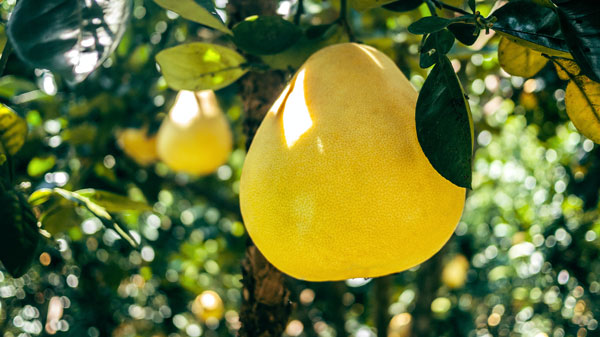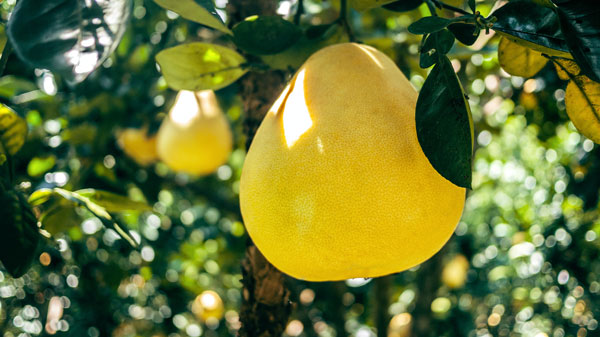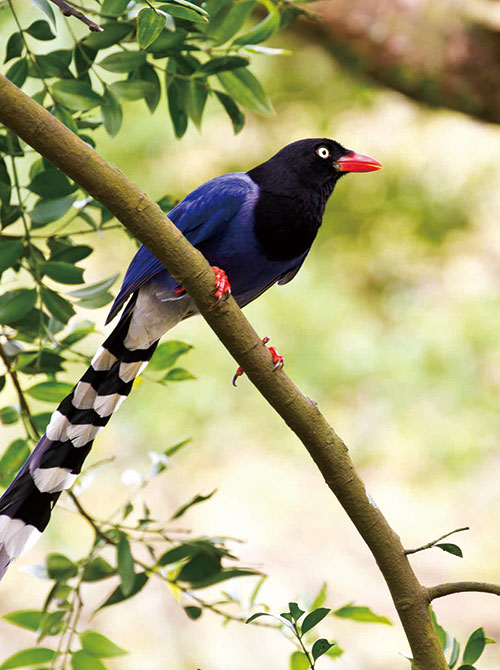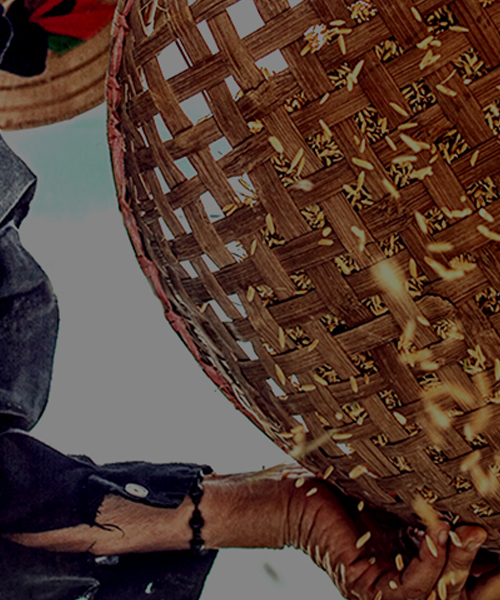What do you know about organic pomelos in Taiwan?
- 2022-06-16
- 2022-06-16
- / 3195 Views
- /

What do you know about organic pomelos in Taiwan?
Moon cakes and pomelos are always on our dining tables during the Mid-Autumn Festival. People like to eat refreshing pomelo flesh after having a big greasy meal, make funny hats with pomelo peel and repel mosquitoes by burning sundried peel. Nowadays various pomelo skincare products are developed according to records in ancient books. “Book of Mountain and Ocean” recorded medicinal uses of pomelo flesh, peel, leaves, flowers, roots and seeds. “Herbal Foundation Compendium” mentioned that pomelo blossoms, cold-quality and non-poisonous, can make hair silky and smooth. Blossoms were collected to make infusion oil for consorts and concubines in the Qing Dynasty. All these applications make organic pomelos even more precious.
How do we differentiate pomelos and shaddock pomelos (Wendan)?
Citrus fruits, including lemon, lime, pomelo, orange, and tangerine, start to welcome their harvest seasons in the autumn and winter. Shaddock pomelo is a kind of pomelos so not all pomelos are Shaddock pomelo.
Pomelo (Citrus maxima or Citrus grandis) is the largest citrus fruit in the Rutaceae family, including Madou Shaddock pomelo (麻豆文旦), Madou red grapefruit (麻豆紅柚), Madou white grapefruit (Big White Grapefruit, 麻豆白柚), Sishi pomelo (西施柚), Honey grapefruit (蜜柚), and grapefruit (葡萄柚). Madou pomelo is a species name. Its fame and taste can easily mislead people to think Madou Shaddock pomelo only grows in Mado, Tainan.
Madou in Tainan, Douliu in Yunlin and Hegang in Hualien are three famous production areas of pomelos in Taiwan. Pomelo has been an important crop in the central and southern Taiwan for the longest time and is famous for its delicate texture and sweetness as well as sweet aftertaste. Farmers in the eastern Taiwan focus on eco-friendly farming and produce juicy pomelos with very fine and juicy flesh. Pomelos in the northern Taiwan have chubby shapes and strong fragrance as well as sweet and sour taste. Pomelos from Shihu in Miaoli have thin skin and juicy flesh as well as honey taste. All these pomelos are favored by consumers.
Pest control is farmers’ biggest challenge to grow organic pomelos.
Pomelo trees prefer warm and humid weather and can adapt to different kinds of soil so farmers around Taiwan can grow organic pomelos. The quality of organic pomelos growing in rich and well-drained sandy soil is much better. Pomelo trees start to bloom in the solar term, Grain Rain (starting on April 20 and ending on May 5). Pomelo farms become tourist attractions for visitors to appreciate elegant and fragrant white blossoms.
Farmers fertilize and prune pomelo trees for more sunlight, better air ventilation and healthy trees before pomelos are ready for harvest. Without pesticides and chemical fertilizers, many snails and Lepidopterous pests can be found on pomelo trees. Among these pests, oriental fruit flies are the most difficult ones to control. Some farmers cover trees with nests and pomelos with paper bags to prevent fly bites. Most organic farmers make their own liquid compost with pruned branches. Furthermore, fallen fruits are used to make bio enzyme, which can add nutrition to plants and prevent pests and diseases.
The best pomelos are harvested 10 days before and after the solar term, White Dew. Organic pomelo farmers usually say the key to have tasty fruits is the ripeness rather than the appearance. When the bottom softens and the oil cell layer becomes flexible, fruits are ripe and ready for taste. Harvested pomelos can be stored for 1 to 2 months in well-ventilated darker and colder locations without any refrigeration. It is recommended to enjoy the best sweetness and flavor when the pomelo skin starts to shrink and gets yellowish. Such condition is called “dehydrating” or “Zhishui (辭水)” in Taiwanese.
Pomelos are very versatile. However, the essential oil in the pomelo skin can irritate the respiratory system of dogs and cats. Please do not put “pomelo hats” on top of your pets’ head just for fun. Detergent with pomelo essential oil can easily clean clothes, dishes, and floors and is great for bathing. It contains no surfactant and is eco-friendly. Detergent DIY is very popular when citrus fruits are harvested in the autumn and winter.





